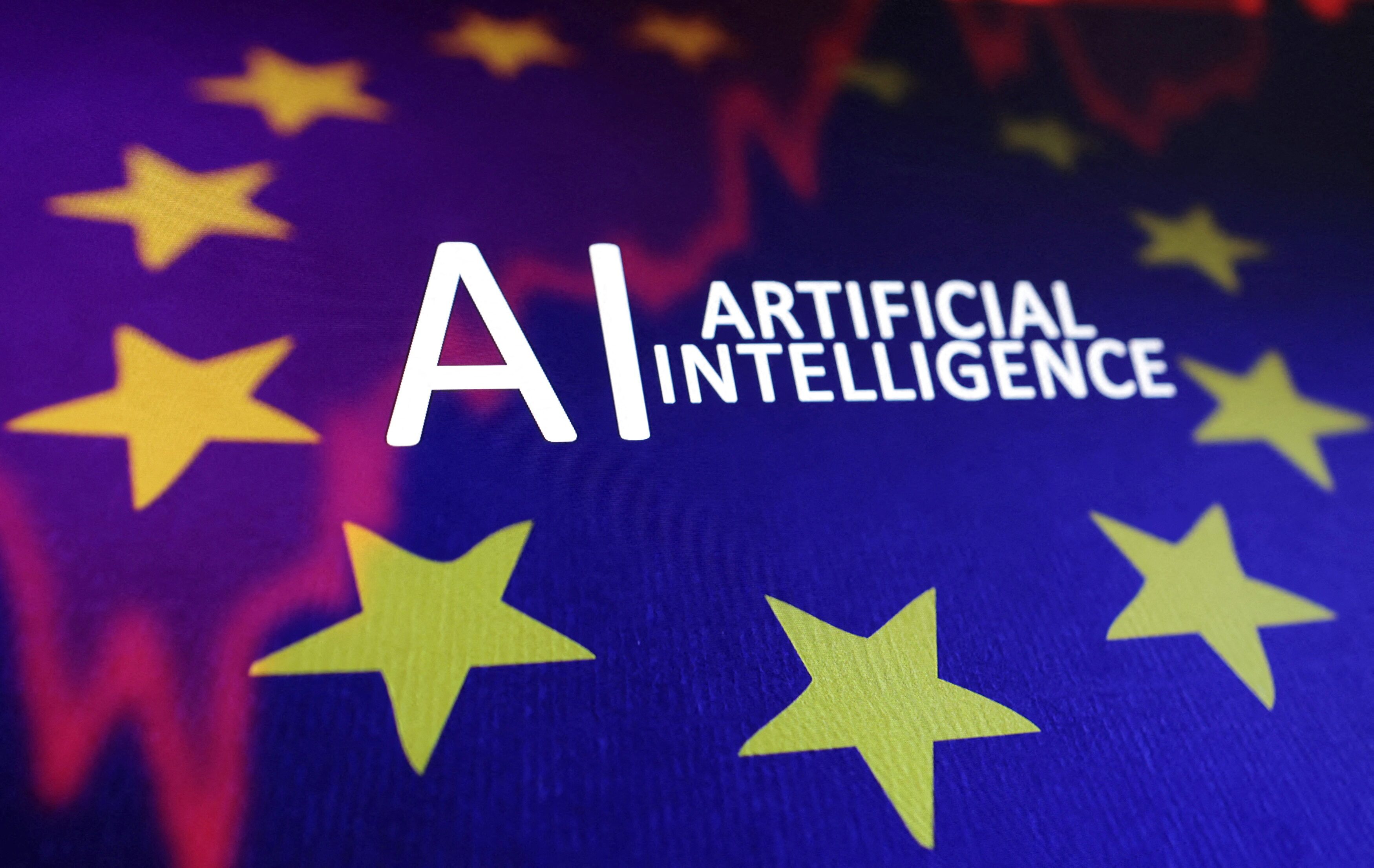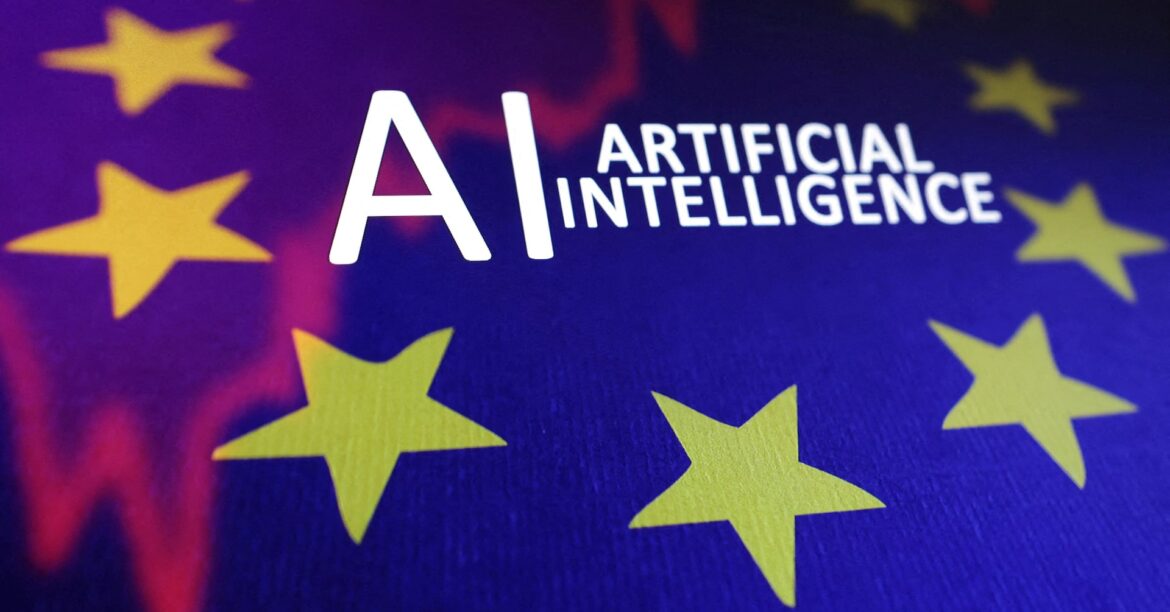
2月4日、 欧州連合(EU)の欧州委員会は、昨年に発効した人工知能(AI)法に基づき、どのようなAIの活用方法が禁止されるかを示した指針を公表した。写真はAIとEUの旗のイメージ。2024年5月撮影(2025年 ロイター/Dado Ruvic)
[ブリュッセル 4日 ロイター] – 欧州連合(EU)の欧州委員会は4日、昨年に発効した人工知能(AI)法に基づき、どのようなAIの活用方法が禁止されるかを示した指針を公表した。例えば、雇用主が従業員の感情を追跡するためにAIを利用することや、ウェブサイト上で利用者にお金を使わせるよう不当に誘導するためにAIを使うことなどが禁止される。
企業は複雑なAI法への対応や法令順守の費用に直面しており、こうした状況下で指針が公表された。
欧州委の高官は記者団に指針の目的について「人工知能システムを提供もしくは導入する者や市場監督当局に法律面の確実性を提供することにある」と説明した。
指針では、サービスに組み込まれたAIの機能で利用者に高額の金銭支出を確約させるよう操作することや、アプリケーションがAIを使って利用者の年齢、障害、社会経済的状況につけこむことなどが禁止される。
EU加盟各国は8月2日までに市場監督当局に対してAI規則を施行するよう命じなければならない。規則に違反した企業は、世界の総売上高の1.5─7%相当の罰金を科される。
私たちの行動規範:トムソン・ロイター「信頼の原則」, opens new tab

An agenda-setting and market-moving journalist, Foo Yun Chee is a 21-year veteran at Reuters. Her stories on high profile mergers have pushed up the European telecoms index, lifted companies’ shares and helped investors decide on their next move. Her knowledge and experience of European antitrust laws and developments helped her break stories on Microsoft, Google, Amazon, Meta and Apple, numerous market-moving mergers and antitrust investigations. She has previously reported on Greek politics and companies, when Greece’s entry into the eurozone meant it punched above its weight on the international stage, as well as on Dutch corporate giants and the quirks of Dutch society and culture that never fail to charm readers.




WACOCA: People, Life, Style.